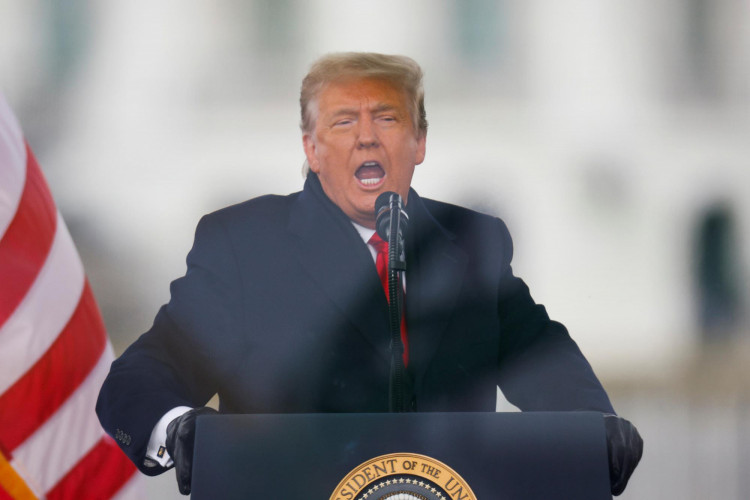During a speech at the Economic Club of New York on Thursday, former President Donald Trump faced significant criticism after delivering a convoluted and unclear response to a question about how he would make childcare more affordable for American families. The event, intended to showcase his economic policies, instead highlighted his struggle to provide a coherent answer, which quickly became the subject of mockery and concern.
The question, posed by Reshma Saujani, founder of Moms First and Girls Who Code, asked Trump to commit to prioritizing legislation to make childcare affordable if he were to win the upcoming presidential election. Saujani emphasized the financial burden of childcare on families, noting that it is one of the key factors preventing many women from fully participating in the workforce.
Trump's response was a meandering explanation that ultimately tied the issue of childcare affordability to his broader economic platform, particularly his proposed tariff increases. "I would do that," Trump began, referencing childcare legislation, before quickly shifting focus. He mentioned his daughter Ivanka Trump's previous work on the issue and Senator Marco Rubio's involvement but failed to provide any specific legislative plans.
Instead, Trump pivoted to discussing his intention to impose substantial tariffs on foreign nations, particularly China, suggesting that the revenue generated from these tariffs would be so significant that it would overshadow the costs associated with childcare. "We are going to be taking in trillions of dollars," Trump claimed. "And as much as childcare is talked about as being expensive, it is relatively speaking not very expensive compared to the kind of numbers we'll be taking in."
This answer, which lacked any clear connection to the question of how to directly address childcare affordability, was widely criticized as incoherent and out of touch with the pressing needs of American families. Social media quickly erupted with reactions, many mocking the former president's failure to offer a concrete solution. Democratic strategist and CNN commentator Maria Cardona summed up the sentiment with a simple, "Ummm, wut?" on X, formerly Twitter.
House Democrat Sean Casten was more pointed in his criticism, labeling Trump's response as "towering stupidity" and accusing him of delivering a "word salad" devoid of any substantive ideas. "The people listening know it. The people around him know it," Casten added, reflecting the frustration many felt with Trump's lack of clarity.
The Lincoln Project, a conservative group opposed to Trump, also weighed in, sarcastically noting that Trump's response came after "weeks of debate prep." The organization's comment underscored the expectation that a seasoned politician should be able to articulate a clear policy position, especially on a topic as crucial as childcare.
Despite the backlash, some of Trump's supporters defended his response, praising him for being willing to answer tough questions, unlike Vice President Kamala Harris, who they claimed had avoided unscripted interviews during her campaign. One supporter commented, "At least he's brave enough to enter the lion's den and answer tough questions," attempting to shift the focus from the content of Trump's answer to his willingness to engage.
In contrast, Harris has been more specific in her proposals to address childcare affordability. She has announced plans to increase the child tax credit from $2,000 to $3,600 per child, with an even more substantial $6,000 credit for parents during the first year of a child's life. This plan, which would cost approximately $1.6 trillion over ten years, aims to provide direct financial relief to families struggling with the high costs of raising children.
Trump's reliance on tariffs as a central economic strategy also raised concerns among economists, who warned that higher tariffs could lead to increased prices for consumers and potentially spark a trade war. These concerns add to the skepticism surrounding Trump's ability to effectively address complex domestic issues like childcare through such indirect means.
Meanwhile, Trump's running mate, Ohio Senator JD Vance, faced criticism for a separate issue. Vance suggested that mass shootings, like the recent tragedy at a high school in Winder, Georgia, are simply "a fact of life." Vice President Harris rebuked Vance's remarks, emphasizing that such violence is preventable and that action must be taken to protect children.






